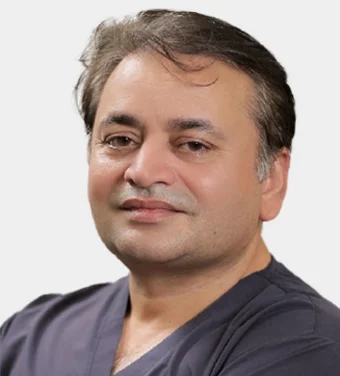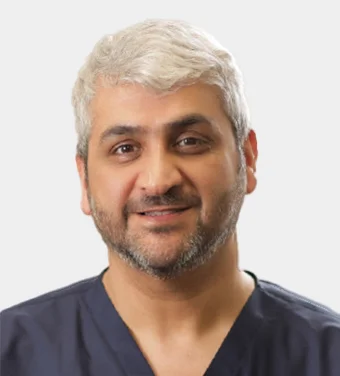
IBS Hospital is at the forefront of treating glioma and glioblastoma, offering advanced surgical solutions. Our skilled neurosurgeons utilize the latest technologies to maximize tumor removal while focusing on patient recovery and quality of life.
What is Glioma & Glioblastoma?
Glioma is listed among the most common types of primary brain tumors, accounting for nearly 30 percent of all tumors originating within the brain. It is an umbrella term used for a wide range of malignancies that originate from glial cells, responsible for providing support and protection to neurons.
Glioblastoma, a highly aggressive type of glioma, accounts for nearly half of all gliomas. Also referred to as glioblastoma multiforme, these tumors tend to grow very rapidly and are most likely to affect people in the age group of 45 to 70 years.
What are the symptoms of Glioma & Glioblastoma?
Both Gliomas and Glioblastomas can lead to a variety of symptoms, which differ based on the Tumors location, size, grade, and other factors. As with any other brain tumor, a classic symptom is an unusual headache that worsens over time.
Other common symptoms associated with Gliomas or Glioblastomas include:
- Seizures
- Fatigue and weakness
- Confusion
- Numbness or tingling sensation in one part of the body
- Loss of balance
- Memory loss
- Lack of coordination
- Abrupt mood swings
- Vision problems
What are the causes of Glioma & Glioblastoma?
The exact cause of Glioma or Glioblastoma is often unidentified, though certain genetic mutations are known to trigger the uncontrolled cell multiplication that leads to these tumors.
Several risk factors have been associated with an increased incidence of Glioblastomas, including:
- Abnormal genes
- Exposure to ionizing radiation
How is Glioma & Glioblastoma diagnosed?
Gliomas and Glioblastomas, like most other brain tumors, are commonly diagnosed with imaging techniques such as:
- Magnetic Resonance Imaging (MRI)
- Computed Tomography (CT scan)
- However, to precisely identify and confirm a glioma diagnosis, a surgical resection of the tumor may be necessary.
How is Glioma & Glioblastoma treated at IBS Hospital?
Patients with Glioma and Glioblastoma have both surgical and non-surgical treatment options available. The standard method for tumor removal is keyhole craniotomy, often followed by chemotherapy or radiation therapy. At IBS Hospital, we utilize advanced neuro-navigation technology and state-of-the-art motor mapping Quicktome facilities, enabling us to remove these tumors with enhanced precision and accuracy.
Our team of experts that make it possible
Meet the team of highly specialised and experienced neurosurgeons, neurologists, orthopedicians, and other experts in the field of neurology and spine care. Our team is dedicated to providing personalised and compassionate care to each patient, with the goal of helping them achieve the best possible outcomes.

Dr. Vikas Gupta
Senior Neurosurgeon

Dr. Dewaker Sharma
Senior Neurosurgeon

Dr. Sachin Kandhari
Senior Neurosurgeon

Dr. Anup Gogoi
Senior Neurosurgeon

Dr. Ankur Dhandha
Anaesthetist

Dr. Gaurav Sharma
Senior Sports Physiotherapist

Dr. Sachin Samuel
Senior Neuro Physiotherapist

Dr Ankush Arora
Anaesthetist

Dr Amarjyoti Yadav
Anaesthetist
IBS Hospital Empowers Your Treatment with Cutting-edge Technology
We continuously incorporate cutting-edge technologies from around the world into our offerings, such as a surgical system that allows for precise and confident complex procedures. We use magnetic stimulation to treat certain neurological conditions and create personalised brain maps for tailored treatment plans. Nerve monitoring during surgeries ensures the nervous system is not compromised, and a robotic exoskeleton aids in mobility issues. Our goal at IBS Hospital is to provide the best care possible, utilising the latest and most innovative technologies available.


